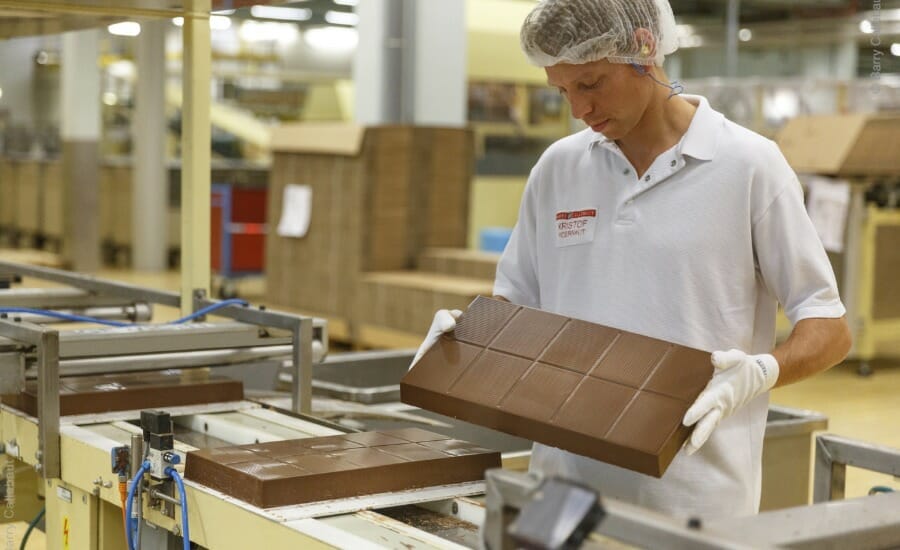As we approach 2025, the landscape of food product innovations is becoming increasingly dynamic, driven by consumer demand for sustainability and health-conscious choices. One of the most significant trends is the rise of plant-based alternatives, which aim to reduce the environmental impact of traditional animal farming. Companies are investing heavily in research and development to create innovative food products that mimic the taste and texture of meat, dairy, and eggs while significantly lowering carbon footprints. This shift caters to the growing vegetarian and vegan populations and appeals to flexitarians seeking to incorporate more plant-based meals into their diets. The ongoing advancements in food technology, including fermentation and cellular agriculture, are expected to play a crucial role in enhancing flavor profiles and nutritional value, making these innovations more appealing to a broader audience.
Another noteworthy area of food product innovations is integrating technology into food preparation and consumption. Smart kitchen appliances are becoming commonplace, allowing consumers to track nutritional information and cooking times easily. Additionally, the rise of personalized nutrition is gaining traction, with companies offering tailored meal plans based on individual dietary needs and preferences. This customization is often powered by data analytics and artificial intelligence, enabling food brands to deliver products that resonate with specific consumer segments. As we move forward, these innovations not only promise to enhance convenience and accessibility but also aim to foster a deeper connection between consumers and the food they consume, ultimately reshaping our relationship with food in the years to come.

1. Sustainable Packaging Solutions
Sustainable packaging solutions are increasingly becoming a focal point in the food industry as companies strive to meet consumer demand for environmentally friendly practices. With a growing awareness of the detrimental effects of plastic on the planet, businesses are actively exploring biodegradable and compostable packaging options. These alternatives reduce plastic usage and align with the broader trend of food product innovations that prioritize sustainability. Companies can significantly minimize their environmental impact by adopting natural decomposing materials while appealing to eco-conscious consumers.
As the food industry continues to evolve, integrating sustainable packaging is crucial for driving food product innovations that resonate with modern values. Many brands are now investing in research and development to create packaging solutions that are functional, aesthetically pleasing, and environmentally responsible. This shift enhances their brand image and encourages a circular economy where materials are reused and recycled. By prioritizing sustainable packaging, companies can lead the way in transforming the food industry and contribute to a healthier planet for future generations.
2. Plant-Based Alternatives
Plant-based foods have surged in popularity over recent years, driven by a growing awareness of health and environmental concerns. As consumers increasingly seek healthier dietary options, food product innovations have emerged to meet this demand. Companies are developing advanced plant-based meat substitutes that aim to replicate the taste and texture of traditional meats, using ingredients like pea protein, jackfruit, and mycelium. These innovations not only cater to the preferences of vegans and vegetarians but also attract flexitarians—those who are looking to reduce their meat consumption without fully committing to a plant-based lifestyle. Alongside these meat alternatives, dairy substitutes made from almonds, oats, and soy are staples in many households, contributing to a broader shift towards plant-based eating.
The rise of plant-based foods is not just a dietary trend but a significant cultural shift towards sustainability and wellness. Health benefits, such as lower cholesterol levels and reduced risk of chronic diseases, are compelling reasons for many consumers to explore these options. Furthermore, the environmental impact of the meat and dairy industries has prompted individuals and businesses alike to seek out more sustainable food practices. Food product innovations in this sector address these concerns by providing alternatives that require fewer resources to produce and generate lower greenhouse gas emissions. As awareness grows, the demand for plant-based products is expected to rise, further propelling the development of creative and sustainable food solutions.
3. Personalized Nutrition
Personalized nutrition is rapidly transforming the landscape of dietary habits and health management, as it acknowledges that each individual has unique nutritional needs and preferences. This customization is made possible through technological advancements, particularly in artificial intelligence and genetic testing. Nutritionists and tech companies can develop tailored nutrition plans that cater to one’s requirements by analyzing an individual’s genetic makeup, lifestyle choices, and health goals. This approach enhances the effectiveness of dietary interventions. It supports the growing trend of food product innovations, which aim to deliver products that resonate with personal health objectives and taste preferences.
The rise of personalized nutrition has led to an explosion of food product innovations that reflect this tailored approach. Companies increasingly focus on creating customized food items that align with individual dietary restrictions, preferences, and health goals. For instance, meal kits that adapt based on user feedback or functional snacks designed to meet specific nutritional needs are gaining popularity. This shift empowers consumers to make informed dietary choices and encourages brands to invest in research and development, pushing the boundaries of what is possible in food product innovations. As the industry continues to evolve, the intersection of technology and nutrition will likely yield even more exciting developments, making personalized nutrition an integral part of healthier living.
4. Alternative Protein Sources
As the global population continues to rise, the demand for protein sources is increasing, prompting a shift towards alternative protein sources that extend beyond traditional meat and plant-based options. Insect-based proteins, such as crickets and mealworms, are gaining traction due to their high nutritional value and low environmental impact. These insects require significantly less land, water, and feed than livestock, making them an attractive solution for sustainable food production. Lab-grown meat, or cultured meat, is also emerging as a viable alternative. By cultivating animal cells in a controlled environment, this innovative approach reduces the carbon footprint associated with conventional meat production while addressing ethical concerns related to animal welfare. These advancements represent a significant shift in food product innovations, catering to a consumer increasingly conscious of health, sustainability, and ethical sourcing.
Algae-based products are another promising alternative protein source making waves in the food industry. Rich in essential amino acids, vitamins, and minerals, algae offer a nutrient-dense food option and play a crucial role in addressing food security challenges. They can be cultivated in diverse environments, including saltwater or wastewater, allowing for resource-efficient production. The development of algae as a protein source aligns with the trend of food product innovations prioritizing sustainability and environmental stewardship. By incorporating these alternative proteins into our diets, we can reduce our reliance on traditional meat sources while tackling pressing issues such as climate change and resource depletion, ultimately paving the way for a more resilient and sustainable food system.
5. Functional Foods and Beverages
Functional foods and beverages are experiencing a surge in popularity as consumers increasingly seek options that offer health benefits beyond basic nutrition. A heightened awareness of the relationship between diet and overall wellness drives this trend. Food product innovations are at the forefront of this movement, with manufacturers incorporating ingredients such as probiotics, adaptogens, and superfoods into their offerings. These additions enhance the nutritional profile of these products and target specific health goals, from gut health to stress management. As consumers become more health-conscious, the demand for functional foods that deliver tangible benefits continues to rise.
Integrating functional ingredients into everyday food and beverage items reflects a significant shift in consumer preferences. Today’s shoppers are looking for products that promote well-being and address health concerns, such as immunity, digestion, and mental clarity. Food product innovations have created a diverse range of options, from probiotic yogurts and adaptogenic teas to smoothies packed with superfoods. This evolution in the food industry caters to individual health needs and aligns with the broader wellness culture, encouraging consumers to make more informed choices about their diets and lifestyles. As this trend continues to grow, it will likely pave the way for even more creative and beneficial food product innovations in the future.
6. Smart Food Technology
Technology integration into food products has revolutionized how we interact with what we eat, leading to remarkable food product innovations that enhance convenience and functionality. Smart packaging, for instance, utilizes sensors to monitor freshness and temperature, ensuring that consumers receive food items at their optimal quality. This technology reduces food waste and empowers consumers to make informed decisions about their purchases, as they can easily track the freshness of their products. This innovative packaging approach transforms the traditional grocery shopping experience into a more interactive and reliable process by providing real-time data.
In addition to smart packaging, the rise of apps and devices that offer real-time nutrition information and personalized recommendations has further propelled food product innovations. These digital tools allow consumers to scan barcodes or input food items to receive instant feedback on nutritional values, allergens, and suggested dietary adjustments tailored to their health goals. This level of personalization enables individuals to take charge of their nutrition in a previously unimaginable way. These technological advancements are reshaping the food industry, making it easier for consumers to access information, maintain a balanced diet, and ultimately enjoy a healthier lifestyle.
7. Global Flavor Fusion
In the ever-evolving culinary landscape, global flavor fusion has emerged as a captivating trend that celebrates the rich tapestry of diverse cuisines. Chefs and food artisans worldwide are engaging in cross-cultural collaborations, blending traditional recipes with modern techniques to create unique food experiences that tantalize the palate. This fusion highlights the beauty of different culinary traditions and fosters innovation, as chefs experiment with unexpected ingredient pairings and cooking methods. The result is a delightful array of food product innovations that reflect the artistry and creativity inherent in the culinary world, inviting diners to embark on a journey of taste that transcends geographical boundaries.
Embracing diversity in the kitchen has led to a dynamic exchange of flavors, techniques, and ideas, pushing the boundaries of what we define as food. From Korean tacos to sushi burritos, these innovative dishes showcase how global influences can coalesce to form something new and exciting. This trend also encourages inclusivity, allowing chefs from various backgrounds to share their heritage while contributing to a collective culinary narrative. As the demand for unique and authentic dining experiences rises, food product innovations will continue to flourish, driving restaurants and home kitchens alike to explore the delightful possibilities that arise from the fusion of global flavors.
Concluding Remarks: Latest Food Product Innovations
As we look towards 2025, the landscape of food product innovations is rapidly evolving, driven by consumer demand for sustainability and health-conscious choices. Companies increasingly focus on creating sustainable packaging solutions that minimize environmental impact while ensuring the freshness of products. This shift caters to the growing eco-conscious consumer base and encourages the industry to adopt more responsible practices. Additionally, technological advancements enable the development of personalized nutrition plans, allowing consumers to tailor their diets based on individual health needs and preferences. This focus on customization is set to redefine how we perceive and consume food, making it more aligned with our unique lifestyles.
Furthermore, the fusion of global flavors is another exciting trend in food product innovations gaining momentum. As consumers become more adventurous and open to trying diverse cuisines, food manufacturers are experimenting with unique flavor combinations that blend traditional recipes with modern culinary techniques. This enhances the dining experience and fosters cultural exchange and appreciation through food. As we continue to innovate, integrating these global influences will likely lead to creating new products that cater to a wide array of tastes and dietary requirements, ultimately transforming how we eat and interact with food in the coming years.












